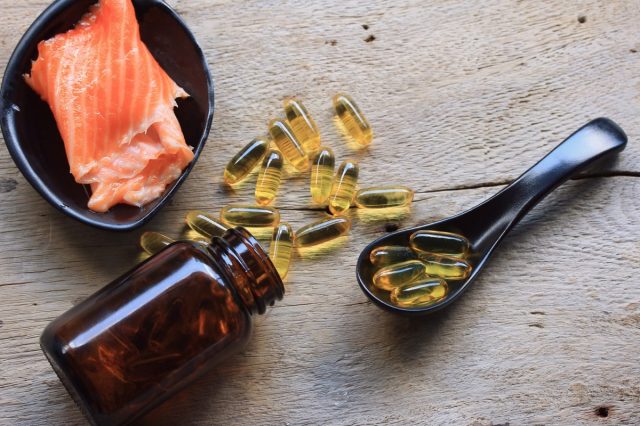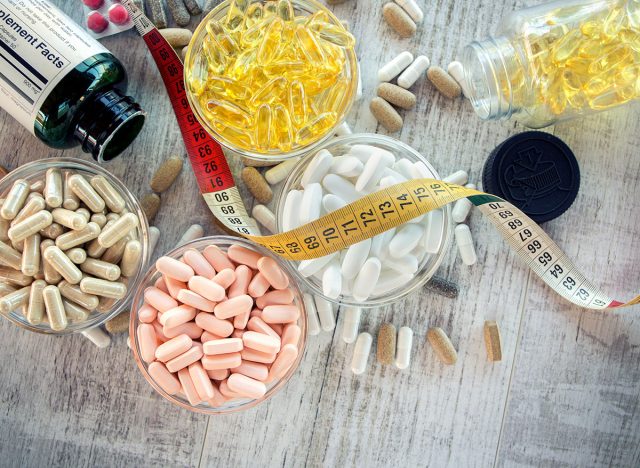Americans are taking more supplements than ever, but are they safe? "Pills are not a shortcut to better health and the prevention of chronic diseases," says Larry Appel, M.D., director of the Johns Hopkins Welch Center for Prevention, Epidemiology and Clinical Research. "Other nutrition recommendations have much stronger evidence of benefits—eating a healthy diet, maintaining a healthy weight, and reducing the amount of saturated fat, trans fat, sodium and sugar you eat." Here are five vitamins you do not need to take, doctors warn.
Fish Oil

Americans spend over $1 billion a year on fish oil supplements, but the research behind their efficacy is mixed at best. Because fish oil is unregulated and could be tainted with dangerous levels of mercury, it's best to get your omega-3s from food sources such as actual fish, chia seeds, flaxseeds, and walnuts. "What should you do if you currently take fish oil? If your doctor prescribed them—they are an approved and effective treatment for people with high blood triglyceride levels—follow his or her instructions until you can have a conversation about fish oil," says Howard E. LeWine, MD. "If you are taking them on your own because you believe they are good for you, it's time to rethink that strategy."
Fat-Soluble Vitamins A, E, and K

Vitamins A, E, and K can be dangerous at high doses due to the way they are stored in fatty tissue and the liver—taking too much can result in liver damage, blood clots, and bleeding in the brain. "Basically, there are two types of vitamins: water-soluble and fat-soluble," says Dawn Gerber, PharmD. "Although your body can excrete large amounts of water-soluble vitamins, it holds onto fat-soluble vitamins, which can be toxic at high levels."
Vitamin C and Zinc

Caution should be taken with Vitamin C (which should be kept under 2,000 mg) and zinc supplements as they can interfere with blood glucose readings. High levels of zinc (over 40 mg) not only has nasty side effects, but can interfere with medication. "Vitamin C is especially hot right now with COVID-19," says Dr. Gerber. "There's currently no strong data that shows vitamin C and zinc help with cold viruses. And the verdict is still out on COVID-19, mostly because it hasn't been around long enough to know. Diabetics use their home glucose monitor and their glucose level looks fine, but the high dose of vitamin C is masking the real low blood glucose reading. If you're taking zinc with an antibiotic, you won't get 100% of the benefit of the antibiotic. That's because zinc can bind itself to the antibiotic and weaken the medication's effectiveness. This can be very frustrating for patients who don't understand why they aren't getting better."
Anything Promising Weight Loss

Weight loss supplements can be downright dangerous, with many containing ingredients that have an amphetamine-like effect. "You just don't know what you are putting in your body," warns Danny Lee-Frost, head of enforcement at the Medicines and Healthcare Products Regulatory Agency (MHRA). "If there's a weakness in your heart, you're in trouble. If you don't know about it, you will once you start taking them."
Anything Promising Sexual Health

"Most supplements for sexual function have not been studied scientifically," says Luigi Simone, MD, a primary care physician at Scripps Clinic in Encinitas. "They may have a placebo effect, which is not insignificant, but as far as the claims of increasing libido or sexual endurance, those have definitely not been proven."
No comments:
Post a Comment